An Automatic Implantable Cardioverter Defibrillator (AICD) is used to monitor and treat patients having malignant tachyarrhythmia protecting against sudden cardiac death.
AICD procedure involves using a sedative that relaxes the individual and allows them to remain aware of the surroundings. The heartbeat is regulated by delivering shocks to the heart whenever an abnormal heartbeat occurs.
The cost of AICD may include:
Preoperative diagnostic tests cost (Chest x-ray, ECG, Cardiac catheterization, blood tests, etc.)
Procedure cost
Type of implant being used
Post-Operative cost (depends on the number of follow-up sessions)
Medicine cost (Antiarrhythmics, Pain Killers, Antibiotics, etc.)
Patient's hospital stay
Note- Patients with ICD should take special care and carry an identification card since a few factors, such as the anti-theft system, may interact with the ICD Device.
The overall cost of the procedure also varies based on the patient's condition and preferences. Some of these factors are:
Type of hospital and room opted (General, Twin sharing, or single room)
The severity of the disease
Post-surgical complications if it happens (such as Bleeding from the incision or catheter insertion site may happen)
Cost of Blood products (if required)
An extended stay at the Hospital
Cost of Accommodation during follow-ups, in case the patient is not a local resident
The right doctor to consult for Automatic Implantable Cardioverter Defibrillators is a cardiologist and an Electrophysiologist.
Listing popular specialists:

Consultant, 19 years of experience

General cardiology Coronary artery disease Preventive cardiology Sport cardiology Echocardiography & 3D echo

Consultant, 16 years of experience

Atrial Fibrillation Clinical Cardiology Electrocardiography Cardiovascular Physiology Acute Myocardial Infarction Atherosclerosis Blood Pressure Echocardiography Chronic Heart Failure Cardiomyopathies

Prof. Charn Sriratanasathavorn
Professor, 30 years of experience

Arrhythmia Atrial fibrillation Electrophysiological study & Radiofrequency ablation Pacemaker Anticoagulant

Assoc. Prof. Chunhakasem Chotinaiwattarakul
Professor, 30 years of experience

• Atrial Fibrillation • Clinical Cardiology • Electrocardiography • Cardiovascular Physiology • Acute Myocardial Infarction • Atherosclerosis • Blood Pressure • Echocardiography • Chronic Heart Failure • Cardiomyopathies
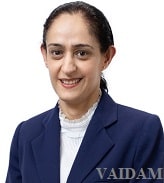
Consultant, 20 years of experience

Cardiac Electrophysiologist and Internal Medicine.
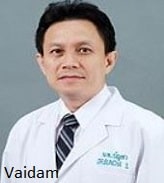
Consultant, 34 years of experience

Electrophysiology Cardiology
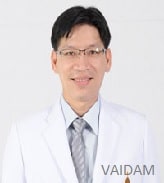
Consultant, 20 years of experience

Clinical Cardiology Electrocardiography Cardiovascular Physiology Acute Myocardial Infarction Atherosclerosis Blood Pressure Echocardiography Chronic Heart Failure Cardiomyopathies Atrial Fibrillation
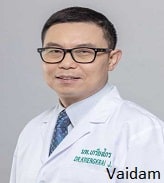
Dr. Kriengkrai Jirasirirojanakorn
Consultant, 34 years of experience

Cardiac Electrophysiology
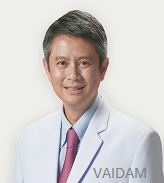
Associate Professor, 25 years of experience

• Atrial Fibrillation • Clinical Cardiology • Electrocardiography • Cardiovascular Physiology • Acute Myocardial Infarction • Atherosclerosis • Blood Pressure • Echocardiography • Chronic Heart Failure • Cardiomyopathies

Consultant, 18 years of experience

Cardiovascular disease treatment Electrophysiology

Professor, 26 years of experience

Echocardiography including stress echocardiography Teaching medical students, residents, and cardiology fellows.
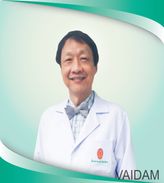
HOD, 33 years of experience

Cardiovascular Diseases Electrophysiology
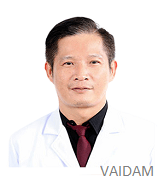
Consultant, 24 years of experience

Interventional cardiology Electrophysiology Advanced heart failure and cardiovascular surgery Percutaneous Trans luminal Coronary Angioplasty (PTCA):Balloon Coronary Artery Stenting Permanent Pacemaker Implantation AICD (Automatic Implantable Cardioverter Defibrillator) Intravascular Ultrasound (IVUS) Rot ablator
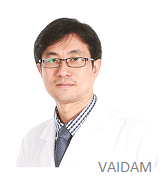
Consultant, 21 years of experience

General cardiology Cardiovascular MRI
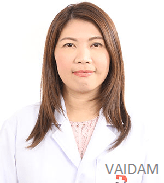
Consultant, 16 years of experience

Internal Medicine - Cardiology (Heart) AICD (Automatic Implantable Cardioverter Defibrillator)

Consultant, 32 years of experience

Cardiology Advanced echocardiography Cardiac MRI Intravascular ultrasound during coronary angioplasty

Consultant, 21 years of experience

Cardiology · Advanced echocardiography · Cardiac MRI · Intravascular ultrasound during coronary angioplasty
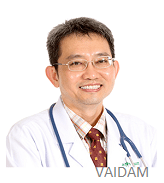
Consultant, 33 years of experience

• Cardiology • Advanced echocardiography • Cardiac MRI • Intravascular ultrasound during coronary angioplasty
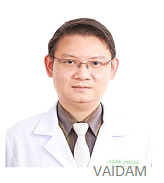
Consultant, 26 years of experience

• Cardiology • Advanced echocardiography • Cardiac MRI • Intravascular ultrasound during coronary angioplasty
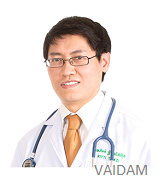
Consultant, 23 years of experience

Advanced echocardiography Cardiac MRI Cardiology Intravascular ultrasound during coronary angioplasty Cardiac Electrophysiology
Our Services for Aicd in Thailand
Transparent - Professional - Without Hassles
AICD is known as automatic implantable cardioverter-defibrillator this device is being used for monitoring the heart beat. This device delivers the electric impulse or shock to heart when it senses a life threatening change in the rhythm of heart.
AICD is just like pacemaker but there are some differences in them, the most important difference is that AICD is being used in those patients who are on high risk of having sudden cardiac arrest.
AICD is a device which is being inserted to the chest to help in fixing of the abnormal heart rhythms.
AICD is being implanted in your chest region this device is being used to monitor the abnormal heart rhythms or arrhythmia this device is also being used to treat some serious life threatening disorders.
Some arrhythmias can cause the heart to completely stop beating. The shock given by the AICD can make the heart start beating normally again.
The complete procedure will take only few hours to complete under local or general anaesthesia.
AICD surgery is being done by a cardiologist.
At the time of surgery you will be given light sedation along with local anaesthesia so that you can feel relax and comfortable during surgery. Then the area below your collar bone will be numbed with local anaesthesia, small cut of approx 5-8 cm is made for inserting the AICD, then the leads are then guided through a vein into the heart and then it is connected to a device after that the skin is stitched together and a small dressing is applied.
Once you return back to your room your heart rhythm and blood pressure will be monitored and you will get an ECG and chest X ray will be done. You will need to be in bed rest for 1-4 hours or till next morning.
You can return back to your home one to two nights after surgery when your cardiologist will notice that you are progress.
Some of the risks of implantable cardioverter defibrillator includes bleeding from the incision site, damage to blood vessels at the site of catheter insertion, infection of the incision or catheter site, tearing of the heart muscle, collapsed lungs and dislodging of the leads which needs another procedure for repositioning it






NABH Certified Healthcare Discovery Platform
Vaidam is NABH certified healthcare discovery platform that will connect you to top-notch medical experts, hospitals, wellness options, and trusted travel partners to help identify and make the right healthcare choices.

Researched & Personalized Treatment Plan - Under One Roof
You can search for the best hospitals, read about them, view photographs of the facilities at the hospitals and the places at which the hospitals are located, and check the cost of treatment.

Quality Treatment Within Your Budget
As soon as you post an enquiry, the patient relation team will collect details from you, share them with the doctors and hospitals on Vaidam's panel, and get a personalized treatment plan. We research to get quality treatment within your budget.

Treatment to Travel
Vaidam concierge assists patients, to get medical Visa, the best airline fares and arrangements for your stay. Our concierge also helps you with daily travel, language, and food concerns. Vaidam does everything to be your perfect host. All of Vaidam’s services are free of cost to patients.

International Reach
Vaidam Health has network in 15+ countries, which includes India, Turkey, UAE, Germany, South Korea, Thailand, Malaysia, Spain.
Note: Vaidam Health does not provide medical advice, diagnosis or treatment. The services and information offered on www.vaidam.com are intended solely for informational purposes and cannot replace the professional consultation or treatment by a physician. Vaidam Health discourages copying, cloning of its webpages and its content and it will follow the legal procedures to protect its intellectual property